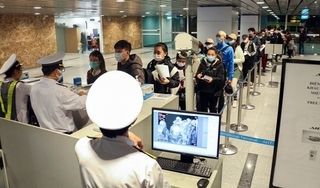Following over a month of efforts to begin inoculating the local population, the nation has carried out the process by using the AstraZeneca vaccine. This has seen more than 70,000 people, the majority of whom are frontline medical workers and members of community-based steering committees for COVID-19 prevention and control in 19 cities and provinces, vaccinated to ensure maximum safety.
Prof. Dr. Dang Duc Anh, director of the National Institute of Hygiene and Epidemiology, states that the immunisation procedures taking place locally are being implemented at the highest safety level, whilst differing from other countries in the world, including developed nations.
“COVID-19 vaccination facilities must ensure standards in terms of facilities, equipment and manpower, implement the screening, counseling process before vaccination, and organise safe vaccination sessions under regulations set out the Ministry of Health.
Vaccinated people must stay at the vaccination site for at least 30 minutes after inoculation in order to monitor their health status, and are instructed to follow up at home for at least 24 hours and to continue follow-up for up to three weeks after injection.
Hospitals are always ready for emergencies to prevent severe reactions after vaccination to ensure maximum safety for the vaccinated," Prof. Anh says.
According to figures released by the Ministry of Health, the first injection campaign saw the monitoring system of the Expanded National Program for Immunization record approximately 33% of injected people suffer a post-injection mild reaction which disappeared after a few days with no need for treatment or medical care. In addition to this, about 1% of cases recorded a hypersensitive reaction after injection, with cases being properly dealt with according to regulations.
Dr. Kidong Park, representative of the WHO in Vietnam, states that ensuring the quality, safety, and effectiveness of vaccines in the nation remains one of the WHO's top priorities.
“Our organisation is working closely with competent Vietnamese agencies to ensure that global standards and regulations are properly implemented to assess and monitor the quality, safety, and effectiveness of COVID-19 vaccines which are being deployed in the country. The WHO will continue to support the Vietnamese Government in implementing this campaign with a particular focus on priority groups,” Dr. Park adds.
Rana Flowers, representative of UNICEF in Vietnam, underscores the need to accelerate the vaccination progress to ensure the country does not fall into a blockade like many other international partners amid the continued global outbreaks of the COVID-19 pandemic in neighbouring countries.
As part of the Expanded National Immunization Programme, the Ministry of Health are calling on all people to stay active and take proactive steps to implement recommendations from specialised agencies on vaccination against COVID-19. This should be done alongside downloading the e-health applications on iOS or Android in order to recorded when individuals are vaccinated.
The consciousness and actions of each person will therefore contribute to helping the nation quickly achieve the goal of vaccinating the population against COVID-19, thereby creating community immunity to prevent widespread infections of the SARS-CoV-2 virus as a mean of effectively combating the pandemic
VOV

Vietnam to accept three groups of people with vaccine passport
The Ministry of Health (MoH) suggested that Vietnam first accept three groups of people with proof of vaccination against the SARS-CoV-2 virus.